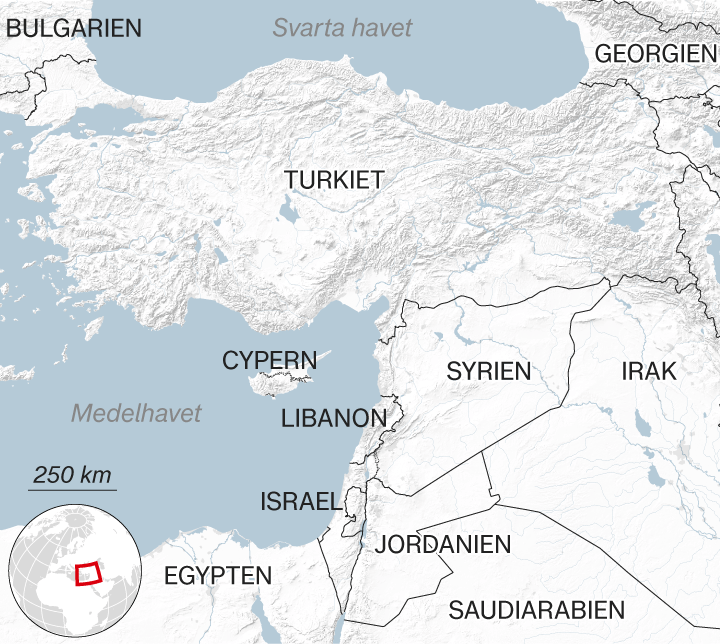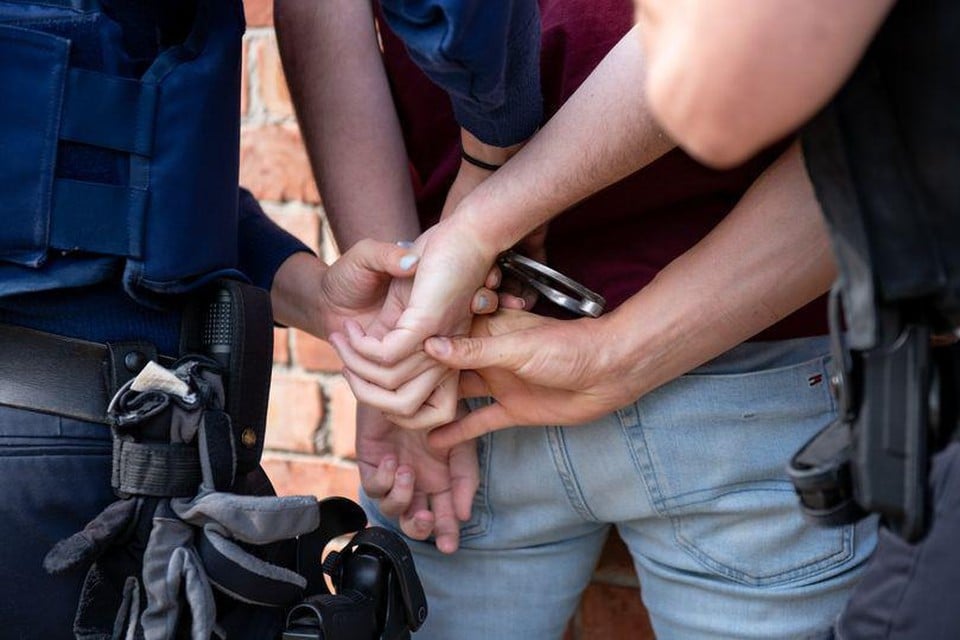« Swedish children are Sweden’s responsibility – always »

It is a dark chapter in history that Swedish citizens traveled to Syria and Iraq to live under ice so -called caliphate. It is also a dark chapter how Swedish authorities have handled the issue. However, there is still the chance for Sweden to correct what went wrong.
Today is six years ago The first Swedish children were allowed to come home From the Syria of war – seven orphans who were repatried got another chance in life and today in Swedish schools and is reintegrated in society. Remaining in Syria there are three Swedish children: nine -year -old Yasmin* and her younger siblings Zein, seven years, and Zahra, six years. They also need to come home.
All states that are part of the global coalition against IS have the opportunity to have their citizens home fly. What is required from Sweden is an approval to enable the repatriation.
Sweden’s current government has positioned itself as one of the states in Europe with the hardest line on the issue
Sweden has wonders The former government, repatriated the majority of Swedish children in the camps, and has shown that there is the capacity to act. Repatriation, that is, to retrieve, is the only way to ensure that these children – who are the innocent victims of the war – have their rights satisfied according to The Convention on the Rights of the Child.
Sweden’s current government has positioned itself as one of the states in Europe with the hardest line on the issue. It was the then Foreign Minister Tobias Billström (M) who in 2024 stated in a Interview with TV4: « We have done the analysis on the part of the Ministry of Foreign Affairs that there is no obligation from Sweden and the Swedish government to act for these people to come home. » It is an attitude that completely lacks a children’s perspective.
The children are denied not only their fundamental rights, but also the possibility of breaking the spiral of violence that has so far characterized their short lives
It’s deep disappointing that the Swedish government in practice allows their own underage citizens to continue to live under inhumane conditions, even though there is the opportunity to save them. The children are denied not only their fundamental rights, but also the opportunity to break the spiral of violence that has so far characterized their short lives.
Since 2019, Yasmin, Zein, Zahra and their mother have been held in prison camps in northeastern Syria in very difficult conditions. The children’s father is supposed to be deceased. The European Court of Justice has found that the environment poses a risk to life and health, and both UN Committee against Torture and UN Children’s Rights Committee mean that conditions correspond to cruel, inhuman or degrading treatment.
Several UN reporters recently criticized Sweden for not fulfilling its international commitments, including the Convention on the Rights of the Child. They describe the children’s situation as an « immediately and predictable threat to their lives » and urge Sweden to immediately ensure their safe return.
Yasmin suffers from serious health problems. According to Save the Children’s team in the camp, she weighed only 16 kilos at the age of eight – corresponding to a four -year weight. She has recurring stomach and chest pain and fainting attacks. In the camp there is no access to meaningful care, education and nutritious food. It is a very bad place for families to be in.
The good news is that the children do not have to be in the camp, but can be taken home to Sweden – if only the Swedish government approves and enables the decision. The Kurdish self -government in Syria, which currently controlling the camps, believes that families should be returned to their home countries. The United States, which leads the global coalition against IS, which includes Sweden, and collaborates with Kurdish self -government, has a team ready to carry out repatriation as soon as Sweden gives a clear sign.
As Swedish citizens, Yasmin, Zein and Zahra have unconditional right to return to Sweden
This is, and should be treated as, primarily a consular issue. As Swedish citizens, Yasmin, Zein and Zahra have unconditional right to return To Sweden. Sweden, according to practice from the UN Torture Committee, the UN Children’s Rights Committee and several national courts, also has a national law responsibility to repatriate children who risk torture or other inhuman treatment, a responsibility that is raised because Sweden has capacity and power to repatriate the children.
UN Committee against torture has been clear: 1) The conditions in the camps involve torture or inhuman treatment. 2) The local authorities and the international community call for repatriation. 3) If a country knows that citizens are in the camp, and 4) have previously shown that it is possible for the country to repatriate, 5), the country has an obligation to act to take its citizens out of the situation – since this measure can prevent them from being exposed to cruel, inhuman or degrading treatment.

To fail to repatriate the children even though Sweden is capable to do so would mean that Sweden violates the requirements under the Convention.
Sweden has through previous repatriations from the prison camp showed that it can be successfully reintegrated families Who got home. With the right support from family, authorities and civil society, repatriated children and mothers have recovered well.
By including the family, giving access to care, education and security, families have not only survived – but have been given the opportunity to build a new future, free from violence and violent extremism. The younger the kids are, the easier for them to recover. Therefore, it is important that Yasmin, Zein and Zahra get home as soon as possible.
Their precarious situation has been politicized
Yasmin, Zein and Zahra are Swedish citizens and thus have the same rights as other Swedish citizens. Nevertheless, they have not been treated as full citizens by Swedish authorities. Their precarious situation has been politicized, but a solution to their situation is available, including through the use of Sweden’s consular capacity.
Their rights and vulnerability as a child should guide the state’s actions; Sweden must consider the best interests of the child, the child’s special vulnerability and the child’s specific needs. It is now up to proof whether Sweden is a rule of law that can handle the children’s case according to the principles of the rule of law.
We assume that the government quickly approves and enables Yasmin, Zein and Zahra to come home. Now.
* The names of the kids are fingered







